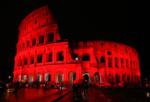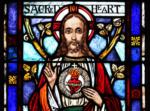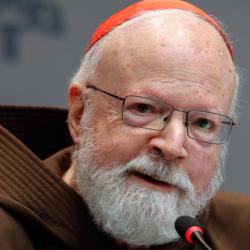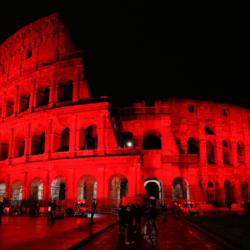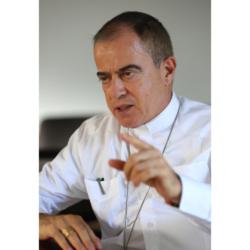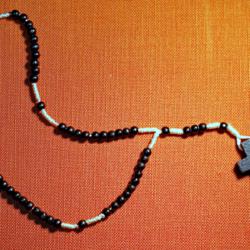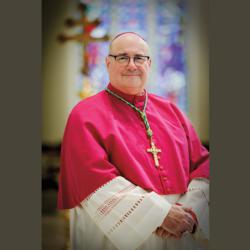Why does Obi-Wan remind me of St. Joan of Arc?
In the epic lightsaber battle between Darth Vader and Obi-Wan Kenobi from Episode IV of "Star Wars," Obi-Wan utters one of the most famous lines from the entire franchise: "You can't win, Darth. If you strike me down, I shall become more powerful than you can possibly imagine." Kenobi subsequently stops dueling, holds his saber in front of him in a posture of surrender, and permits Vader to fell him in one powerful stroke. Instead of Obi-Wan's body falling to the ground, however, it vanishes, as his robes collapse in an empty heap at Vader's feet. And, of course, the accuracy of Kenobi's prophecy is well documented in subsequent episodes.
I thought of this scene as I revisited George Bernard Shaw's play "Saint Joan" about the trial, execution and restoration of St. Joan of Arc, which debuted 100 years ago, in December 1923.
In Shaw's dramatic recreation of St. Joan's sham trial, she agrees to renounce her alleged crimes and heresies after she learns that her sentence will be death by burning. "[O]nly a fool will walk into a fire," she declaims; "God, who gave me common sense, cannot will me to do that." Thus, illiterate Joan makes her mark on a confession and recantation, "tormented by the rebellion of her soul against her mind and body," as Shaw notes in a stage direction.
But when a sentence of life imprisonment is still passed against her, St. Joan flies into a holy rage, rips up the recantation, and shouts, "Light your fire: do you think I dread it as much as the life of a rat in a hole?"
After Joan's execution, the Earl of Warwick, who presided over the trial, says to a member of the ersatz court, Brother Martin, "I am informed that it is all over." To which Brother Martin replies, "We do not know, my lord. It may have only just begun." He then recounts his observation at the execution: Joan "looked up to heaven .... I firmly believe that her Savior appeared to her then in His tenderest glory. She called to Him and died. The is not the end for her, but the beginning." Minutes later, when the executioner reports to Warwick, "You have heard the last of her," Warwick replies, "The last of her? Hm! I wonder!"
It is difficult to know what to make of St. Jean d'Arc. Was she a revolutionary feminist, bursting the artificial bonds of what is not permissible for women to say, do, or even wear? Was she a great military strategist and inspired leader of soldiers? Was she a champion of the common person, vicariously raising the esteem and spirits of the French peasantry? Was she a religious mystic, experiencing direct instruction from Sts. Catherine, Margaret, and Michael? Was she a political nationalist, asserting God's favor over France? Was she mad -- a holy fool, with whom one might show condescending sympathy and patience, but be wary of her counsel and claims?
Of course, in 1456, 15 years after her conviction and execution, the verdict was overturned. And in 1920, the church declared her a saint. But neither of these events are necessarily inconsistent with any or all of these (or other) possible judgments about St. Joan.
This is precisely the genius of Shaw's "Saint Joan," and the reason for its abiding importance.
Hundreds of theologians, historians, poets, novelists, songwriters, sculptors and painters have tried to crack the code that is the enigma of Maid of Orleans. Shaw does not try to do this; he has no interest in attempting to solve the riddle of St. Joan.
And that's precisely why he succeeds where so many others fail. Shaw's play teases out the tensions and paradoxes in Joan's life and faith. Like many saints, she did not always act or speak in a saintly way. Similarly, Shaw accounts for the quandaries and contradictions in 15th-century political powers and ecclesiastical authorities. He charges none of the Maid's accusers with bad faith but exposes all of them to judgment. In doing so, Shaw directs the stage lights on us, the audience. His St. Joan of Arc is a proxy for the tensions and paradoxes that lie in every human breast. And her prosecutors and executioners are a challenge to see the same in ourselves, before we judge it in others.
We know very little about the historical person St. Jean d'Arc. What we know with certainty, however, is that her death by burning in 1431 was not the "last" we heard of her. After she was struck down, she became more powerful than her accusers and executioners could possibly have imagined. On its centenary, George Bernard Shaw's "Saint Joan" remains an enduring testimony to that power.
- Kenneth Craycraft is an Associate Professor of Moral Theology at Mount St. Mary's Seminary and School of Theology in Cincinnati.




